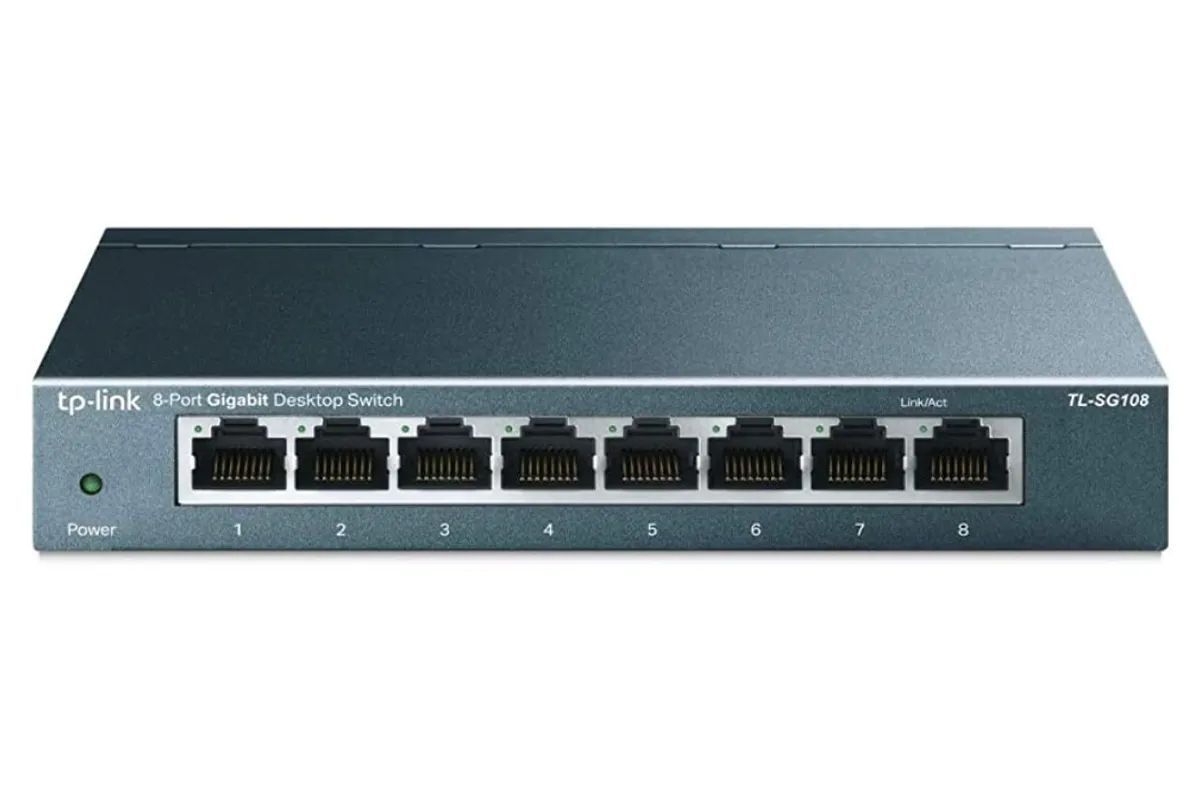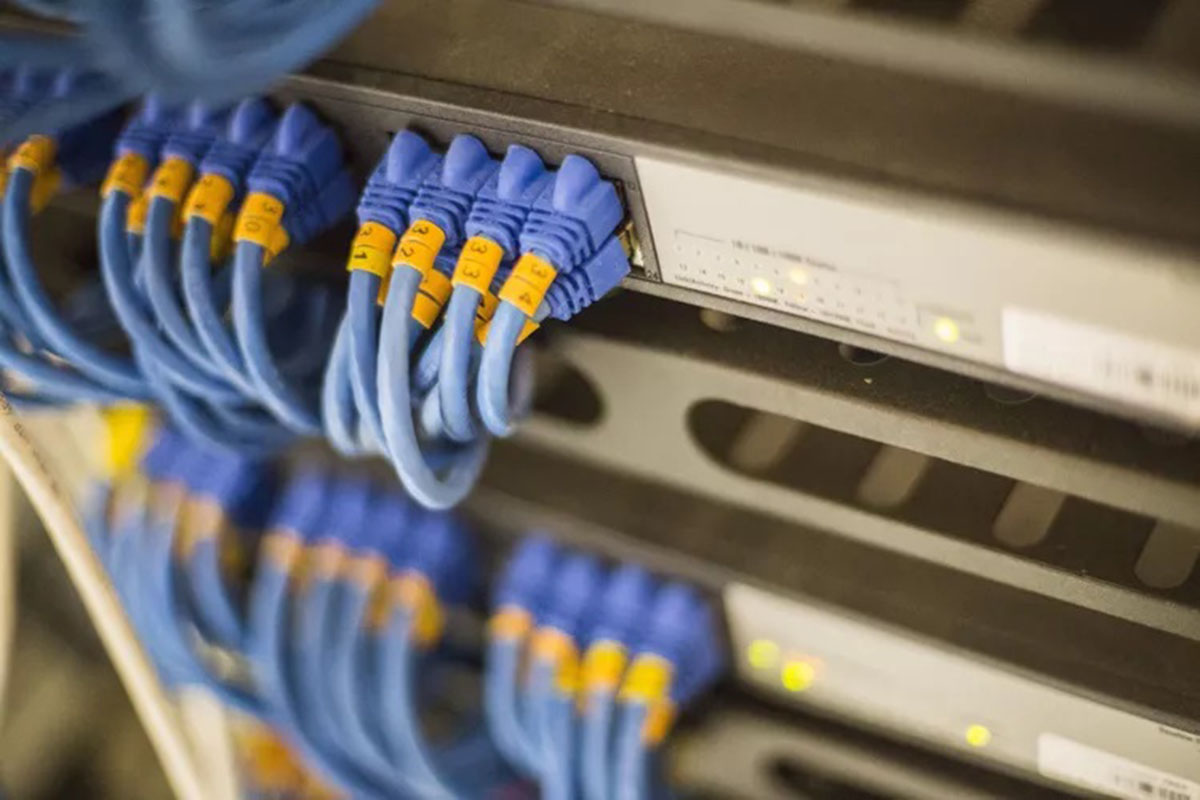Introduction
The world of online gaming has experienced a tremendous surge in popularity over the past decade. Millions of players from all around the globe engage in interactive multiplayer experiences, battling it out in virtual environments. However, behind the scenes, there are various technical aspects that contribute to a smooth and enjoyable gaming experience. One such aspect is the use of Differentiated Services Code Point (DSCP) in online gaming.
DSCP, a component of the Quality of Service (QoS) architecture, plays a crucial role in managing and prioritizing network traffic. It aims to optimize the transmission of data packets by assigning different DSCP values to different types of network traffic. This categorization allows for the proper handling of online gaming traffic, ensuring that it receives the necessary bandwidth and latency requirements to minimize lag and provide an optimal gaming experience.
In this article, we will explore the importance of DSCP in online gaming, the different types of DSCP used, and how it can impact gaming performance. We will also discuss best practices for optimizing DSCP to enhance the overall gaming experience. So, whether you’re a seasoned gamer or just starting your gaming journey, understanding DSCP can help you make informed decisions when it comes to improving your online gaming experience.
What is DSCP?
Differentiated Services Code Point (DSCP) is a field in the IP header of a network packet that allows for the classification and prioritization of network traffic. It is a part of the Quality of Service (QoS) architecture, which aims to optimize network performance by ensuring that different types of traffic receive the necessary resources and prioritization.
DSCP uses a six-bit value in the IP header to categorize packets into various traffic classes. These traffic classes determine the level of service that should be provided to the packet as it traverses through the network. Each DSCP value represents a specific treatment for the associated packet, such as the amount of bandwidth, latency, and prioritization it should receive.
DSCP enables network administrators to allocate network resources based on the requirements of the traffic flowing through the network. By assigning different DSCP values to different types of traffic, such as voice, video streaming, web browsing, and online gaming, network devices can apply appropriate queuing, classification, and forwarding mechanisms to ensure optimal performance for each application.
It’s important to note that DSCP is only effective within a network that supports QoS. Both the sending and receiving devices need to understand and interpret the DSCP values for proper handling of the packets. This requires the routers, switches, and other network equipment within the network infrastructure to be properly configured for QoS and DSCP-based traffic shaping.
Overall, DSCP provides a mechanism for prioritizing network traffic based on its importance and the quality of service required by different applications. In the context of online gaming, DSCP allows for the prioritization of gaming traffic, ensuring that the data packets are delivered with low latency and minimal packet loss, resulting in a smoother and more responsive gaming experience.
Why is DSCP important in online gaming?
Online gaming is a highly interactive and demanding activity that relies heavily on real-time communication and synchronization between players. To ensure a smooth and lag-free gaming experience, it is essential to prioritize network traffic related to online gaming. This is where DSCP plays a critical role.
DSCP allows for the prioritization and efficient handling of gaming traffic in the network. By assigning specific DSCP values to gaming packets, network devices can identify and give them preferential treatment, ensuring that they receive the necessary bandwidth and minimal latency. This prioritization helps to reduce lag, packet loss, and jitter, resulting in a more responsive and enjoyable gaming experience.
In online gaming, even a slight delay or interruption in data transmission can have a significant impact on gameplay. A high DSCP value assigned to gaming traffic ensures that it takes precedence over other types of less time-sensitive traffic, such as file downloads or web browsing. This allows for a dedicated and responsive pathway for gaming data, optimizing the overall gaming experience.
Another advantage of DSCP in online gaming is its ability to manage network congestion. During peak times when the network is experiencing heavy traffic, DSCP can help allocate and allocate network resources intelligently. By giving gaming traffic a higher priority, DSCP ensures that gaming packets are not hindered by other less critical traffic, resulting in a smoother and more stable gaming experience.
Furthermore, DSCP allows for better network control and management. Network administrators can configure routers, switches, and other network devices to give priority to gaming traffic and enforce Quality of Service (QoS) policies that prioritize the delivery of gaming packets. This level of control ensures that online gamers benefit from a network environment specifically optimized for gaming traffic, enhancing their overall gaming performance.
In summary, DSCP is a crucial factor in online gaming as it allows for the prioritization and efficient handling of gaming traffic. By giving gaming packets a higher priority, DSCP ensures a smoother and more responsive gaming experience, reduced lag, and improved overall performance. The ability to manage network congestion and enforce QoS policies further enhances the gaming experience, making DSCP an essential component in optimizing online gaming networks.
Types of DSCP used in online gaming
In online gaming, different types of network traffic require different levels of prioritization and quality of service. To accommodate this, various DSCP values are used to classify and prioritize gaming traffic. These DSCP values indicate the level of service and treatment that gaming packets should receive within the network. Let’s explore some of the common types of DSCP used in online gaming:
EF (Expedited Forwarding)
EF is a widely used and well-known DSCP value for prioritizing real-time traffic in general, including online gaming. It offers a high level of expedited and low-latency forwarding, making it suitable for latency-sensitive applications like gaming. EF ensures that gaming packets receive preferential treatment in terms of bandwidth allocation and minimal delay, resulting in a smoother and more responsive gaming experience.
AF (Assured Forwarding)
AF is a set of four DSCP values, AF1 to AF4, each representing a different priority class. AF provides a flexible and scalable approach to prioritize network traffic. In online gaming, AF can be used to assign different DSCP values to different aspects of gaming traffic, such as gameplay data, voice chat, and video streaming. This allows for granular control over the prioritization of gaming-related traffic based on its importance and sensitivity to delays.
CS (Class Selector)
CS is a set of eight DSCP values, CS0 to CS7, which provide compatibility with the older Type of Service (ToS) field. While CS values do not offer the same level of granularity as EF or AF, they can still be used to classify and prioritize gaming traffic. For example, CS4 can be assigned to gaming traffic to give it a higher priority compared to other general use traffic like web browsing or file downloads.
Custom DSCP Values
In addition to the standard DSCP values, custom DSCP values can also be used in online gaming. These values can be defined and assigned based on the specific needs and requirements of the gaming application or network environment. Custom DSCP values provide flexibility in tailoring the prioritization of gaming traffic to match the unique characteristics and demands of a particular gaming scenario.
Overall, the types of DSCP used in online gaming vary based on the specific requirements and priorities of gaming traffic. Whether it’s prioritizing real-time gameplay data, voice communication, or video streaming, the use of appropriate DSCP values ensures that gaming packets receive the necessary treatment to deliver a smooth and responsive gaming experience.
DSCP values commonly used in online gaming
In online gaming, Differentiated Services Code Point (DSCP) values are used to classify and prioritize network traffic. These DSCP values indicate the level of service and treatment gaming packets should receive within the network. While the specific DSCP values used can vary depending on the network configuration and gaming platform, there are some commonly used DSCP values in online gaming. Let’s explore them:
EF (Expedited Forwarding) – DSCP 46
The EF DSCP value, also known as DSCP 46, is frequently utilized in online gaming. It represents the highest level of expedited forwarding and is ideal for latency-sensitive applications like gaming. Packets marked with EF/DSCP 46 receive the highest priority for bandwidth allocation and minimal delay, ensuring a smooth and responsive gaming experience.
AF (Assured Forwarding) – DSCP 24-31
The AF (Assured Forwarding) DSCP values are a set of four classes, AF1 to AF4, each representing a different priority. In online gaming, different aspects of gaming traffic may be assigned different AF DSCP values. For example, AF31 could be used for gameplay data, AF41 for voice chat, and AF21 for video streaming. This allows for granular control over the prioritization of different types of gaming traffic.
CS (Class Selector) – DSCP 8-15
The CS (Class Selector) DSCP values provide compatibility with the older Type of Service (ToS) field. CS values range from CS0 to CS7, with each value representing a different level of priority. While CS values may not offer the same granularity as EF or AF, they can still be used to classify and prioritize gaming traffic. For example, CS4 could be assigned to gaming traffic to give it a higher priority compared to general use traffic like web browsing or file downloads.
Custom DSCP Values
In addition to the standard DSCP values mentioned above, custom DSCP values can also be used in online gaming. These values can be defined and assigned based on the specific needs and requirements of the gaming application or network environment. Custom DSCP values provide flexibility in tailoring the prioritization of gaming traffic to match the unique characteristics and demands of a particular gaming scenario.
While the specific choice of DSCP values can vary across different gaming platforms and network setups, the common goal remains consistent – ensuring that gaming traffic receives the necessary prioritization and quality of service. By utilizing appropriate DSCP values, network administrators can optimize the flow of gaming data, reducing latency, and providing a seamless gaming experience for players.
How does DSCP impact online gaming performance?
Differentiated Services Code Point (DSCP) plays a crucial role in optimizing online gaming performance. By assigning specific DSCP values to gaming traffic, DSCP ensures that gaming packets receive the necessary prioritization and quality of service within the network. Let’s delve into how DSCP impacts online gaming performance:
Prioritization of Gaming Traffic
DSCP allows for the prioritization of gaming traffic over other types of network traffic. By assigning higher DSCP values, such as EF or AF values, to gaming packets, network devices can ensure that gaming data receives preferential treatment. This prioritization ensures that gaming traffic is given priority in terms of bandwidth allocation, minimal delay, and low packet loss. As a result, online gamers experience reduced lag, improved responsiveness, and a smoother gameplay experience.
Reduced Latency and Jitter
DSCP helps to minimize latency and jitter in online gaming. By giving gaming traffic a higher priority, DSCP ensures that gaming packets are delivered with minimal delay and consistent timing. This reduction in latency and jitter is crucial for online gaming, as even the slightest delay or variation in packet arrival can negatively impact gameplay. With DSCP, gaming traffic is prioritized to traverse the network with minimal queuing delays, resulting in improved overall performance and synchronization between players.
Minimized Packet Loss
DSCP assists in minimizing packet loss in online gaming. Packet loss occurs when data packets are dropped or fail to reach their destination. This can disrupt the smooth flow of gaming data and introduce lag or interruptions in gameplay. By assigning appropriate DSCP values to gaming traffic, DSCP ensures that gaming packets are given a higher priority and are less likely to be dropped during times of network congestion. This helps to maintain the integrity of gaming data and provides a more reliable and uninterrupted gaming experience.
Effective Bandwidth Management
DSCP enables effective bandwidth management for online gaming. By assigning specific DSCP values to gaming traffic, network administrators can allocate and control the bandwidth dedicated to gaming. This ensures that gaming traffic obtains adequate resources, even during periods of high network activity. DSCP allows for intelligent traffic shaping and resource allocation, allowing online gamers to have a more consistent and reliable gaming experience, especially in shared network environments.
In summary, DSCP plays a vital role in optimizing online gaming performance. By prioritizing gaming traffic, reducing latency and jitter, minimizing packet loss, and enabling effective bandwidth management, DSCP ensures a smoother, more responsive, and enjoyable gaming experience. Network administrators can leverage DSCP to enhance the quality of service for gaming traffic, ultimately improving the overall performance of online gaming applications.
Best practices for optimizing DSCP in online gaming
To ensure optimal performance in online gaming, it is important to optimize the use of Differentiated Services Code Point (DSCP) values. By following best practices for DSCP configuration, you can maximize the prioritization and quality of service for gaming traffic. Here are some best practices for optimizing DSCP in online gaming:
Understand the Game’s Network Requirements
To effectively optimize DSCP for online gaming, it is crucial to understand the network requirements of the game you are playing. Different games may have varying needs in terms of bandwidth, latency, and packet priority. Consult the game’s documentation or network settings to determine the recommended DSCP values or QoS configuration for optimal performance.
Assign Appropriate DSCP Values
Assigning appropriate DSCP values to gaming traffic is essential for prioritizing it in the network. Consider using DSCP values such as EF (Expedited Forwarding) or AF (Assured Forwarding) classes, which are commonly used for real-time applications like gaming. Prioritize critical aspects of gaming traffic, such as gameplay data and voice chat, with higher DSCP values, while assigning lower DSCP values for less time-sensitive traffic like video streaming or updates.
Configure QoS on Network Devices
To ensure consistent DSCP handling throughout the network, configure Quality of Service (QoS) settings on routers, switches, and other network devices. Enable QoS features like traffic shaping, queuing algorithms, and packet prioritization. Implement QoS policies that prioritize DSCP-based traffic, giving higher priority to gaming packets. This ensures that DSCP is recognized and respected across the network infrastructure.
Inspect and Validate DSCP Markings
Regularly inspect and validate DSCP markings on network packets to ensure they are being properly classified and prioritized. Use network monitoring tools to identify any inconsistencies or issues with DSCP markings. Verify that DSCP markings are consistent with the intended prioritization and adjust configurations if necessary. Regular monitoring helps to maintain the effectiveness of DSCP-based prioritization for gaming traffic.
Consider Network Segmentation
Consider segmenting gaming traffic from other non-gaming traffic on your network. This can be done by implementing Virtual LANs (VLANs) or creating separate network segments dedicated to gaming. By separating gaming traffic, you can apply specific QoS policies and prioritize DSCP values exclusively for gaming, ensuring the highest quality of service for online gaming applications.
Regularly Test and Fine-Tune DSCP Configurations
Continuously test and fine-tune your DSCP configurations to ensure optimal performance. Monitor the network for any changes in traffic patterns or network requirements. Conduct periodic tests to assess the impact of DSCP configurations on gaming performance. Fine-tune DSCP settings based on the results of these tests, striving for the best possible prioritization and quality of service for gaming traffic.
By following these best practices, you can optimize the use of DSCP in online gaming, ensuring that gaming traffic receives the necessary prioritization and quality of service. Implementing appropriate DSCP values, configuring QoS settings, validating DSCP markings, considering network segmentation, and regularly fine-tuning configurations will help deliver a seamless and immersive gaming experience.
Conclusion
Differentiated Services Code Point (DSCP) plays a vital role in optimizing online gaming performance by prioritizing and ensuring the quality of service for gaming traffic. By assigning specific DSCP values to gaming packets, network administrators can prioritize bandwidth allocation, reduce latency and packet loss, and deliver a smoother and more responsive gaming experience.
Understanding the different types of DSCP used in online gaming, such as EF, AF, and CS values, allows for the proper classification and prioritization of gaming traffic. Custom DSCP values can also be utilized to meet specific gaming requirements. By configuring network devices with appropriate QoS settings and regularly validating DSCP markings, network administrators can ensure consistency and effectiveness in handling gaming traffic.
Optimizing DSCP in online gaming involves best practices such as understanding game network requirements, assigning appropriate DSCP values, configuring QoS on network devices, inspecting and validating DSCP markings, considering network segmentation, and regularly testing and fine-tuning DSCP configurations. These practices help to maximize the prioritization and quality of service for gaming traffic, resulting in improved gaming performance.
In summary, optimizing DSCP in online gaming is crucial for minimizing lag, reducing latency, and providing a smoother gameplay experience. By implementing best practices and following proper configurations, network administrators can ensure that gaming traffic receives the necessary prioritization and bandwidth allocation in both local and shared network environments. This allows gamers to fully immerse themselves in online gaming worlds and enjoy seamless and responsive gameplay.

























